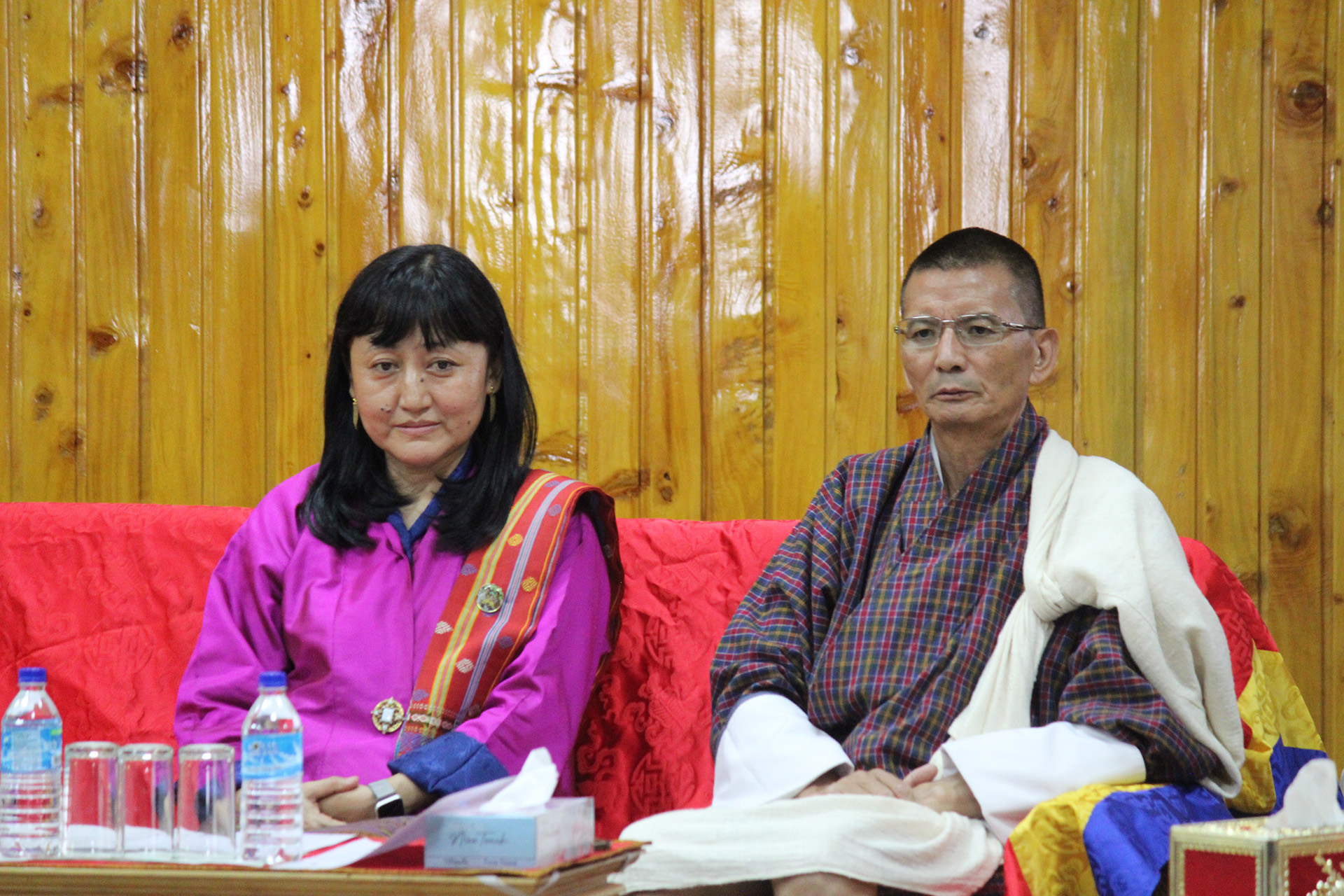The Bhutan–IVI Collaborating Center (BICC) was officially inaugurated today at KGUMSB, marking a significant milestone in Bhutan’s advancement in health research, pandemic preparedness, and regional collaboration. The ceremony was graced by Hon’ble Lyonpo Tandin Wangchuk, Minister for Health, Royal Government of Bhutan, and attended by esteemed guests from the International Vaccine Institute (IVI) in partnership with the the Hong Kong Jockey Club Global Health Institute (HKJCGHI), regional experts, national institutions, and international partners.
This landmark launch builds upon Bhutan’s long-standing partnership with IVI, which began in 1996 with the signing of the IVI Establishment Agreement. The collaboration was further strengthened with the signing of a Memorandum of Understanding (MoU) in June 2024 between the Ministry of Health, KGUMSB, and IVI, formalizing shared objectives in vaccine research and public health innovation.
a. Key Focus Areas of the BICC Collaboration Include:
- Establishment of the Bhutan-IVI Collaborating Center:
- Exploration of the creation of a joint place or institutional framework named BICC.
- Capacity Building and Professional Development
- Joint development of proposals for health research and CPD programs.
- Health Research and Innovation
- Collaborative research on vaccine-preventable diseases, AMR, health economics, climate change, and pandemic preparedness.
- Academic Programs
- Co-development of curricula, exchange programs, and scholarship opportunities.
- Human Resource Development
- Secondment, technical training, and institutional strengthening initiatives.
- Support for Immunization Programs
- Explore sustainable financing strategies, including strengthening the Bhutan Health Trust Fund.
b. Symposium Highlights: Advancing Health Research in Asia
Following the launch, a regional symposium was convened to facilitate dialogue on emerging public health issues and collaborative research. Presentations by experts focused on lessons from the COVID-19 pandemic and forward-looking strategies, such as:
- Mr. Rinzin Gyalpo – Bhutan’s National Pandemic Preparedness and Response Plan (NIPPRP)
- Prof. Florian Marks – Climate change and its impact on vaccines
- Prof. David Aanensen – Role of genomics in AMR surveillance and infection control
- Dr. Sunate Chuenkitmongkol –Enhancing regional collaboration through the AVSSR initiative
- Dr. Hyon Jin Jeon – Burden of invasive non-typhoidal Salmonella in Sub-Saharan Africa
- Dr. Sanjib Sharma – Kidney Care Network as a community-based model in Nepal
- Dr. Birkneh Tadesse – Vaccine research and child health in low- and middle-income countries (LMICs)
c. Moving Forward
The launch of BICC reinforces Bhutan’s commitment to regional solidarity, equitable access to health innovation, and evidence-based public health policy. It is envisioned as a regional platform to foster scientific exchange, support pandemic preparedness, and advance collaborative health research across South and Southeast Asia.
KGUMSB, in collaboration with IVI, looks forward to nurturing impactful partnerships and building resilient health systems that address current and future global health challenges.












